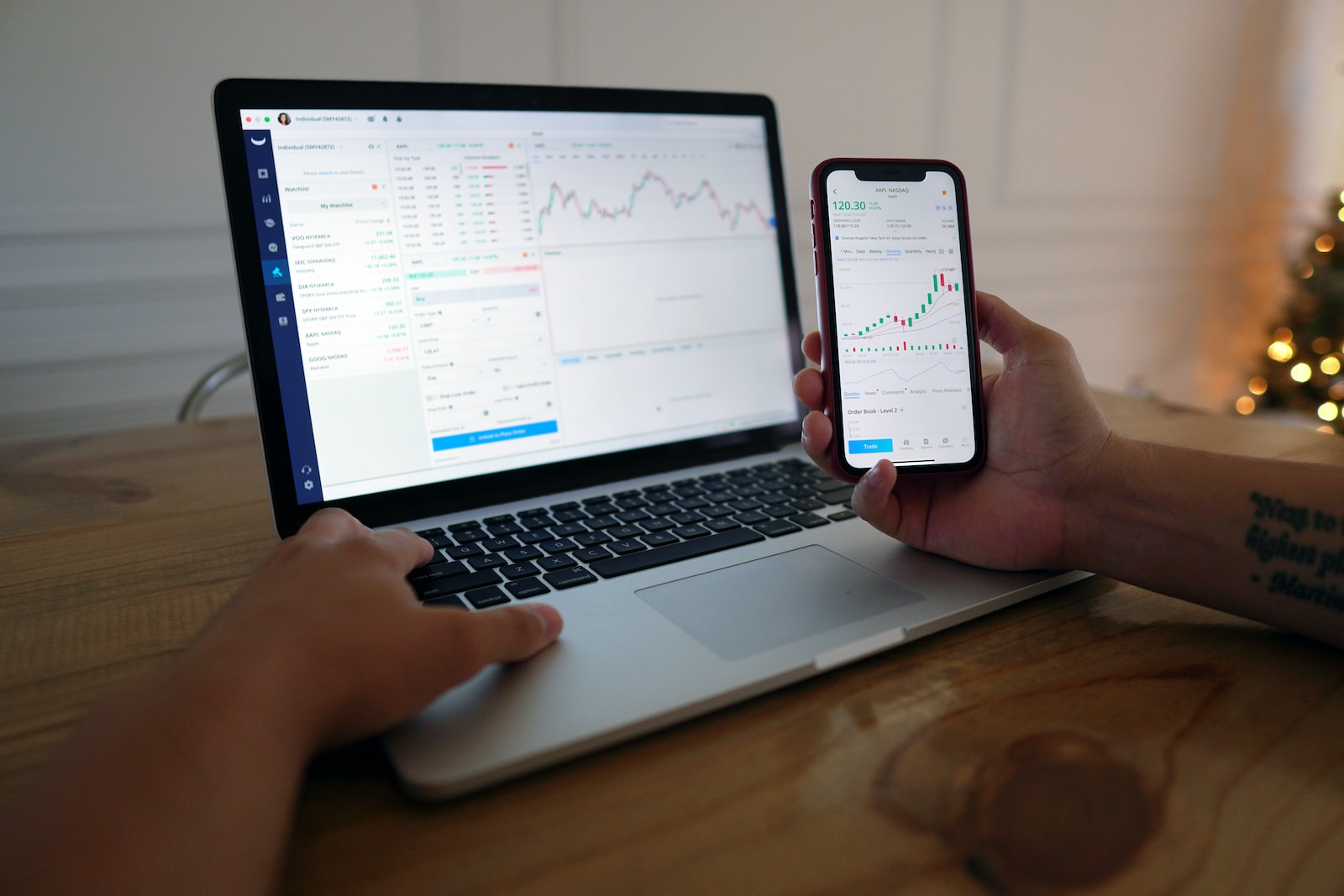Navigating the World of Online Brokers
In today’s dynamic investment landscape, choosing the right online broker is more crucial than ever. With a plethora of platforms offering zero-commission trading and a wide array of asset transaction options, the task of selecting one that aligns with your investment goals can be daunting.
Key considerations in this decision include the platform’s user-friendliness, customer support quality, and the range of additional features offered. It’s equally important to steer clear of platforms that employ gamification tactics promoting excessive trading.
Forbes Advisor has undertaken a comprehensive evaluation of leading online brokers, pinpointing top choices for diverse investor profiles – from self-directed veterans to beginners just venturing into the world of investing.
Insights on the Best Online Brokers of 2024
eToro: A Versatile Platform for Diverse Assets
- Special Offer: New users depositing $100 get a $10 bonus, exclusively in the US.
- Trading Options: eToro stands out for its wide range of trading options, including stocks, ETFs, and a notable selection of cryptocurrencies.
- User Experience: Tailored for both beginners and seasoned traders, eToro offers intuitive tools and a social trading platform where users can follow and copy the trades of experienced investors.
- Additional Features: Real-time data, social news feed, and risk management tools.
Best for Beginners: TD Ameritrade
- Rating: Earns a solid 4.4 from Forbes Advisor.
- Commissions and Fees: Offers commission-free trading for stocks, ETFs, and options, making it an affordable choice for beginners.
- Educational Resources: Extensive educational content including webinars, articles, and training videos, ideal for those new to investing.
- Platform Strengths: Known for its user-friendly interface and excellent customer support.
Best for Active Traders: Interactive Brokers
- Rating: Also rated 4.4 by Forbes Advisor.
- Trading Tools: Offers advanced charting and analysis tools, ideal for active traders who require in-depth data and fast execution.
- Asset Diversity: Supports a wide range of asset classes including stocks, options, futures, forex, and more.
- Pricing Structure: Competitive pricing with low per-share pricing on trades.
Best Mobile App: TD Ameritrade
- Rating: Consistently high rating of 4.4.
- Mobile Experience: The mobile app is highly intuitive, offering robust functionality for trading on the go.
- Features: Real-time streaming quotes, customizable charts, and easy order entry.
- Accessibility: Seamless integration with TD Ameritrade’s web platform.
Best for Options Trading: Tastytrade
- Rating: A solid 3.9 rating.
- Specialization: Specifically tailored for options trading, with a focus on educational content.
- Tools: Offers unique tools and features for options traders, including detailed analytics and strategy-building tools.
- Community: Access to a vibrant community of traders and experts.
Best Overall: Fidelity Investments
- Rating: Maintains a top rating of 4.4.
- Comprehensive Services: Offers a full suite of investment options and services, from stocks and bonds to retirement planning.
- Research and Tools: Provides extensive research resources and advanced tools for both casual and serious investors.
- Customer Service: Known for excellent customer service and investor education.
Best for Customer Service: Charles Schwab
- Rating: Scores a strong 4.3.
- Client Support: Exceptional customer service with 24/7 support and in-branch services.
- Investment Options: Broad range of investment options including stocks, mutual funds, and fixed income products.
- Educational Resources: Comprehensive educational resources for investors at all levels.
Online Brokerage: A Deeper Dive
The Essence of Online Brokers
Online brokers have transformed the investment landscape, democratizing access to financial markets. They serve as gateways to the world of investing, offering a technologically advanced yet user-friendly approach. By enabling individuals to buy and sell stocks, bonds, and funds digitally, these platforms have effectively made the traditional broker virtually obsolete for many investors.
Functionality of Online Brokers
The process starts with setting up an account, akin to a digital entry into the financial markets. Once you’ve onboarded, the trading platform becomes your command center for investment activities. These platforms vary significantly – some cater to beginners with straightforward, intuitive designs, while others offer a suite of sophisticated tools for seasoned traders, including real-time analytics, algorithmic trading capabilities, and customizable charts.
Understanding Online Brokerage Accounts
An online brokerage account is the cornerstone of personal investment management in the digital age. It’s where you can trade a variety of assets, from blue-chip stocks to emerging-market ETFs. These accounts operate under the same regulatory frameworks as traditional brokerage accounts, meaning they’re subject to various tax implications depending on your trading activities and investment choices.
Buying Stocks Online: A Step-by-Step Guide
- Account Setup: Choose a broker that fits your needs, and open an account. This process usually involves verifying your identity and providing financial information.
- Funding Your Account: Deposit funds through bank transfers, wire transfers, or other available methods.
- Platform Familiarization: Spend time getting to know the trading platform. Many brokers offer demo accounts or practice areas where you can learn to navigate their systems without financial risk.
- Research and Analysis: Utilize the broker’s research tools and resources to study potential stock purchases. Look into company fundamentals, market trends, and analyst reports.
- Placing Orders: When ready, enter the market by placing buy orders for your chosen stocks. Be familiar with different order types, such as market orders or limit orders, to execute trades effectively.
- Investment Monitoring: Continuously monitor your investments and the broader market trends. Stay informed and ready to make adjustments to your portfolio as needed.
Choosing the Right Online Broker
Selecting an ideal broker requires a careful balance of several factors:
- Commission Fees: Understand the fee structure for trades. While many brokers offer commission-free trading, there might be other fees or costs involved.
- Platform and Tools: The trading platform should match your level of expertise and trading style. Whether you’re a day trader or a long-term investor, the tools and features should enhance your trading decisions.
- Research and Education: Look for brokers that provide robust educational materials and research tools. This is particularly important if you’re new to investing.
- Customer Support: Reliable and accessible customer support can be crucial, especially in volatile market conditions or if you encounter issues with your account.
- Promotions and Bonuses: Some brokers offer incentives for new accounts, especially for substantial initial deposits. These can include cash bonuses, free trades, or other perks.
Final Considerations
Choosing an online broker is a significant decision in your financial journey. It’s not just about the costs or the tools provided; it’s also about finding a platform that aligns with your investment philosophy and goals. The right broker can empower you with the resources, support, and functionality you need to effectively navigate the financial markets and make informed investment decisions.
Conclusion
The landscape of online brokers in 2024 offers diverse options to cater to various investor needs, from beginners to active traders. Platforms like eToro, TD Ameritrade, Interactive Brokers, Tastytrade, Fidelity Investments, and Charles Schwab stand out in their respective specialties, providing tools, resources, and services that align with different investment strategies and preferences. With no one-size-fits-all solution, these platforms collectively offer a comprehensive range of options, ensuring that every investor can find a broker that aligns with their investment journey.


